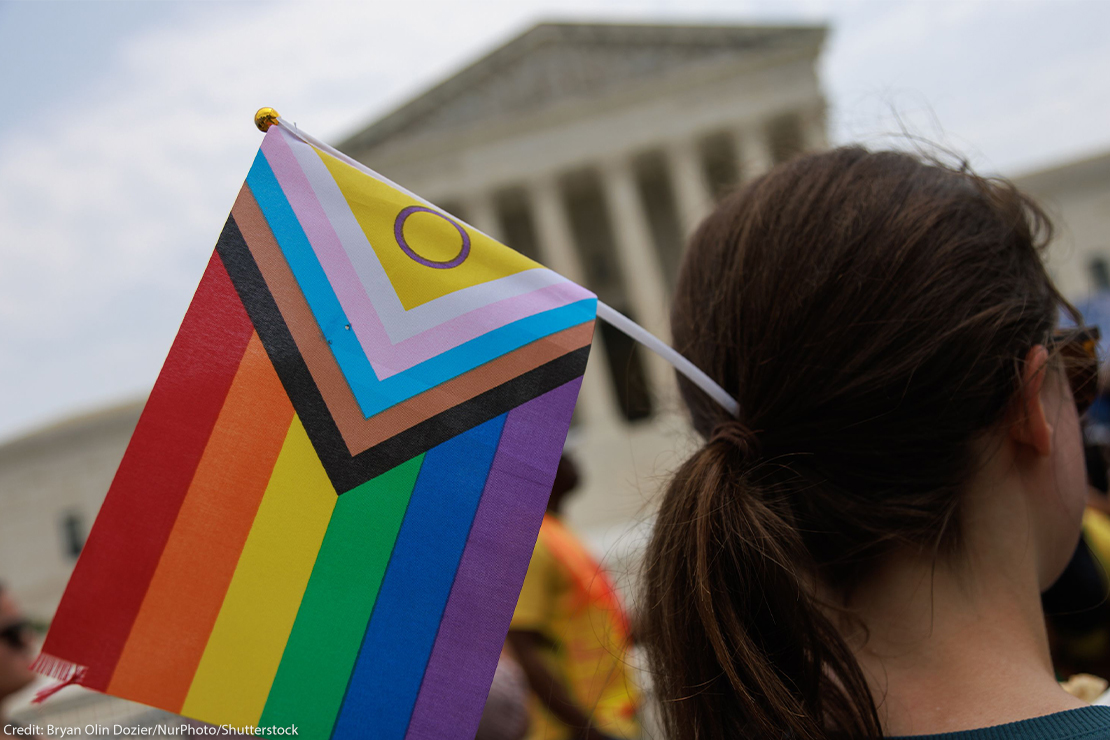
Aubry McMahon v. World Vision, Inc.
What's at Stake
On October 28, 2024, the ACLU and ACLU of Washington filed an amicus brief in the U.S. Court of Appeals for the Ninth Circuit supporting affirmance of a Washington district court decision holding that a religiously affiliated nonprofit organization violated Title VII and the Washington State antidiscrimination law when it rescinded a hiring candidate’s job offer because she is a woman married to a person of the same sex. Should the Ninth Circuit accept the organization’s First Amendment defense—that religious organizations can discriminate on any basis so long as it is grounded in their religious belief—it would gut employment protections for LGBTQ individuals and pave the way for religious organizations to discriminate on the basis of not only sex, sexual orientation, and gender identity but also other protected characteristics like race, color, and national origin.
Summary
In November 2020, Aubry McMahon applied for an administrative position with World Vision Inc., a religiously affiliated nonprofit that provides humanitarian aid to combat poverty and hunger. In January 2021, World Vision extended a job offer to Aubry. Upon learning that Aubry is a woman married to a person of the same sex, World Vision rescinded its offer. World Vision argued that Aubry was ineligible for the position because she could not comply with its Standard of Conduct—a facially discriminatory policy that prohibits World Vision employees from engaging in “sexual conduct outside the Biblical covenant of marriage between a man and a woman.”
In July 2021, Aubry filed suit alleging that World Vision unlawfully discriminated against her on the basis of sex, sexual orientation, and marital status in violation of Title VII and the Washington Law Against Discrimination (“WLAD”). In November 2023, the district court ruled in Aubry’s favor and held that World Vision violated Title VII and the WLAD when it rescinded her job offer because she is a woman married to a person of the same sex. The court also rejected World Vision’s affirmative defenses—including Title VII’s religious employer exemption, the First Amendment’s ministerial exception, and the freedom of association.
Our amicus brief argues that the district court properly found that World Vision violated Title VII and the WLAD when it rescinded Aubry’s employment offer because she is in a same-sex marriage. Specifically, we address five points. First, the district court correctly found that Title VII only shields religious organizations from liability for religious discrimination claims, not all claims of discrimination. Second, the district court properly held that the WLAD’s religious organization exemption only applies where the employee is a minister—which Aubry was not. Third, World Vision’s church autonomy argument, if accepted, would allow religious organizations to discriminate against their employees for any reason, bypassing Title VII liability. Fourth, the district court properly held that World Vision does not have an expressive association right to discriminate against non-ministerial employees based on sex. Fifth, accepting World Vision’s affirmative defenses could gut Title VII and local civil rights protections for LGBTQ people employed by religious institutions. It would also pave the way for religious organizations to discriminate on the basis of other protected characteristics like race, color, and national origin.
Legal Documents
-
10/21/2024
Plaintiff-Appellee McMahon's Brief, McMahon v. World Vision -
08/21/2024
Defendant-Appellant World Vision's Brief, McMahon v. World Vision -
10/28/2024
ACLU & ACLU-WA Amicus Brief, McMahon v. World Vision
Date Filed: 10/21/2024
Court: U.S. Court of Appeals for the Ninth Circuit
Affiliate: Washington
Date Filed: 08/21/2024
Court: U.S. Court of Appeals for the Ninth Circuit
Affiliate: Washington
Date Filed: 10/28/2024
Court: U.S. Court of Appeals for the Ninth Circuit
Affiliate: Washington
-
07/09/2021
Complaint, McMahon v. World Vision -
06/12/2023
Order Granting Def. World Vision's MSJ, McMahon v. World Vision -
07/24/2023
Order Granting Pl. McMahon's Motion for Reconsideration, McMahon v. World Vision -
06/27/2023
Pl. McMahon's Motion for Reconsideration, McMahon v. World Vision -
11/28/2023
Order Granting Pl. McMahon's MSJ, McMahon v. World Vision
Date Filed: 07/09/2021
Court: District Court (W.D. Wash.)
Affiliate: Washington
Date Filed: 06/12/2023
Court: District Court (W.D. Wash.)
Affiliate: Washington
Date Filed: 07/24/2023
Court: District Court (W.D. Wash.)
Affiliate: Washington
Date Filed: 06/27/2023
Court: District Court (W.D. Wash.)
Affiliate: Washington
Date Filed: 11/28/2023
Court: District Court (W.D. Wash.)
Affiliate: Washington